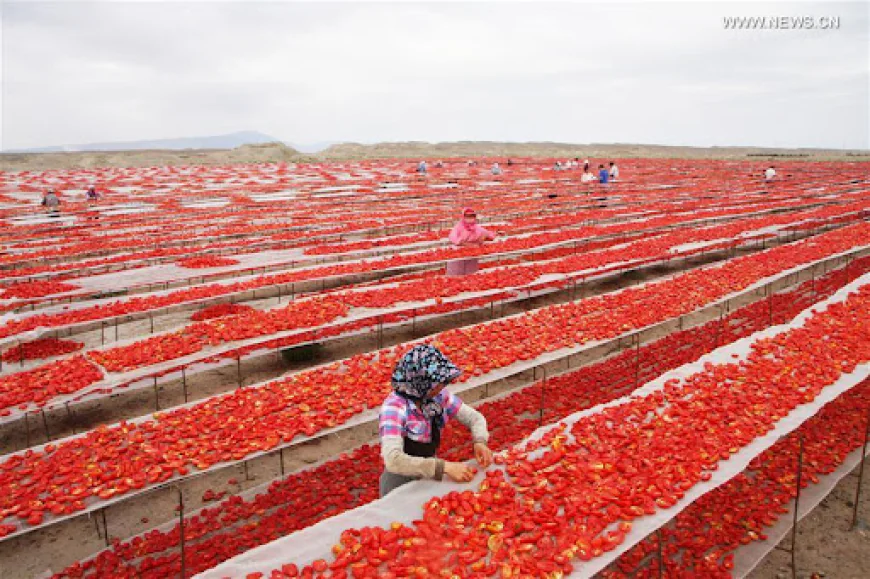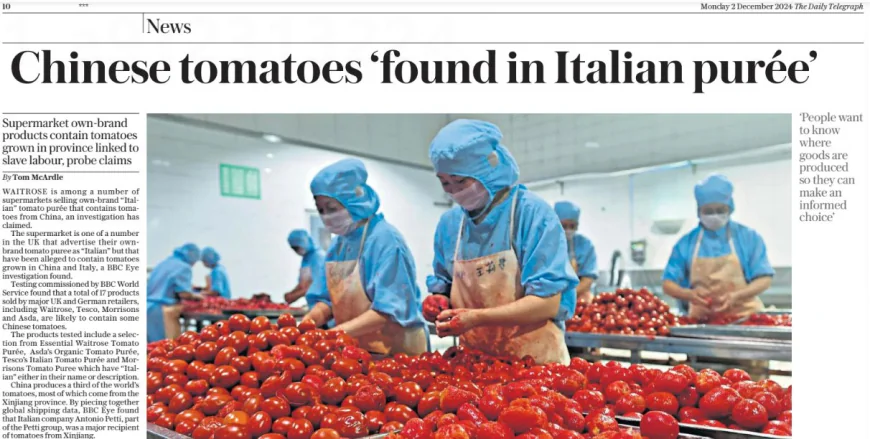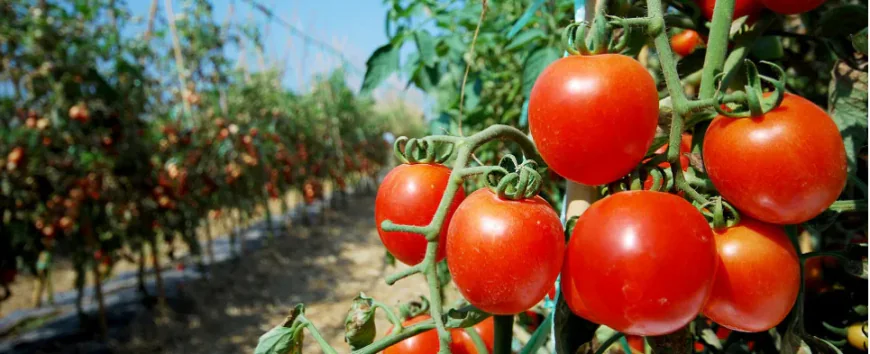China’s Tomato Export Model Collapses in Europe
Allegations of forced labour, mislabelling scandals in Europe and shifting international market dynamics have now left China with hundreds of thousands of tonnes of unsold tomato paste.

China is grappling with a massive surplus of tomato paste after exports to Italy—one of its key buyers—collapsed amid widespread concerns over forced labour practices in Xinjiang and misleading origin labelling by some Italian companies.
The western Chinese region of Xinjiang has rapidly expanded tomato cultivation and processing in recent years, positioning itself as a major low-cost export hub.
However, its aggressive growth strategy has now backfired, leaving China with an estimated 600,000 to 700,000 tonnes of unsold tomato paste, equivalent to roughly half a year of exports.
Italy, the world’s largest exporter of tomato-based consumer products such as passata and purée, traditionally imported bulk tomato paste for use in industrial processing.
However, mounting scrutiny from farming associations, retailers, and consumer advocacy groups has significantly altered the landscape.
Italian farming association Coldiretti led a prominent campaign to defend the integrity of the country’s iconic tomato industry, challenging the influx of Chinese paste sold at prices less than half of Italian products.
The group argued that the low-cost imports undercut local farmers, raising concerns about ethics and authenticity.
Francesco Mutti—the chief executive of Mutti, one of Italy’s leading tomato brands—celebrated the sharp fall in imports, calling it an “important victory” for Italian agriculture and consumer trust.
This scrutiny intensified after Italian authorities discovered that a number of processors had mixed Chinese tomato paste into products labelled “100% Italian”, misleading consumers and damaging the credibility of Italian brands.

Ethical concerns have plagued Xinjiang’s tomato industry, which is heavily concentrated in a region already under international scrutiny for alleged human rights abuses against the Uyghur minority.
Human rights organisations and investigations, including a BBC documentary, have alleged the use of forced labour in Xinjiang’s tomato harvesting and processing.
In 2021, the United States imposed a ban on tomato products from the region, citing concerns about forced labour. China has strongly denied these allegations, saying it is a “lie fabricated by anti-China forces” that has been “debunked by facts”.
The consequences for Chinese exports have been dramatic. According to Tomato News, total Chinese tomato paste exports fell 9% year-on-year in the third quarter of 2025.
However, exports to Western EU countries plummeted by 67%, and Italy’s purchases dropped by 76%. Chinese customs data showed the value of tomato paste shipments to Italy fell sharply—from over $75 million to less than $13 million in the first nine months of 2025.
Xinjiang ramped up tomato processing significantly in recent years — from approximately 4.8 million tonnes in 2021 to around 11 million tonnes in 2024 — as regional producers sought to capitalise on export opportunities.
With European demand plunging, however, authorities and companies have been forced to scale back production to avoid building excessive inventories.
But with European demand collapsing and inventories piling up, China has now been forced to cut production to an estimated 3.7 million tonnes for 2025. Industry analysts say these reductions are necessary to avoid further stockpiling, which poses logistical, financial, and quality concerns.
While only a handful of Italian companies were directly involved in mislabelling, the fallout has affected the wider industry, fuelling distrust and scrutiny.
The episode highlights a growing global sensitivity to ethical sourcing, brand authenticity, and food traceability—particularly in luxury food sectors such as Italy’s iconic tomato products.
China’s tomato paste predicament highlights the challenges of competing in global food markets, where price is no longer the sole determining factor.
Trust, transparency, and authenticity have become equally crucial, particularly in Europe, where regulators and consumers are increasingly demanding ethical and traceable sourcing.
As China navigates its tomato surplus, the Italian victory also serves as a broader signal: global markets are watching not just what is produced, but how.
China now faces a strategic crossroads. It can continue competing on cost — risking further backlash and market exclusion — or shift towards transparency, traceability and partnerships that build long-term trust in foreign markets.
As consumer ethics and supply chain scrutiny increase, the success of agricultural exports will depend not only on price but also on credibility.


